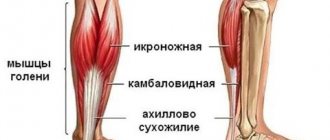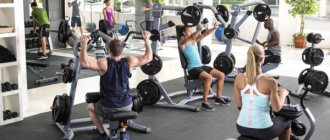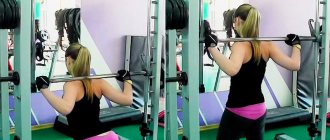Author: Mikhail Ziborov - author of the website makefitness.pro | more details >> I am a swimming coach at a youth sports school and a gym instructor.
Place in the ranking of authors:
12
(become an author) Date: 2020-11-11 Views: 5,013 Rating: 4.3
| All articles by the author >> | Medals articles >> |
Articles are loading...
We will talk about training in general: about cardio training (aerobic exercise) and strength training (anaerobic exercise). Let's consider both cases: is it possible to train on an empty stomach for cardio and for strength training?
From the material you will learn:
1. Disadvantages of training on an empty stomach. 2. Positive aspects of training on an empty stomach.
Which is better?
How do you prefer to train? On an empty stomach or after a solid meal? I personally am only able to move in the early morning, before breakfast. Many people, on the contrary, can function normally only by eating heavily.
The debate about the best way to exercise will probably never go away. Fans of exercise on an empty stomach are squabbling with those who like to snack one more time, and it seems that the truth is still far from true. Today we will try to give a definitive answer to the question of how to exercise most effectively.
Which exercises to prefer for morning training: strength or cardio?
It is believed that cardio training is most effective in the morning on an empty stomach. The level of fat burning in the morning is highest.
This is due to the optimal hormonal activity of the body. Therefore, the process of losing weight will be quite active.
As a general rule, strength training to build muscle mass on an empty stomach is not recommended (at least if you are not a pro), since in the absence of a sufficient amount of nutrients, some muscle fibers are lost, and muscle mass even decreases somewhat.
Athletes-bodybuilders, who probably know what they are doing, go to the gym on an empty stomach while preparing for competitions. This helps them reduce the fat layer as much as possible and draw out the relief of the body.
Morning workouts can also be included in the strength training plan of athletes looking to build muscle mass, as a boost to increasing the effectiveness of the next workout. This can be explained by the fact that if the body has adapted to cope with a deficiency of nutrients, then when they enter the body, the effect of their use during training increases significantly.
It has been proven that training on an empty stomach is beneficial for developing endurance in athletes who need to withstand significant physical activity for long periods of time.
In the morning hours, the efficiency of the use and absorption of oxygen by the human body increases three times.
Need to know! Morning workouts shouldn't be too intense. It is most effective to carry them out at a medium pace. The duration of the workout should not be less than 30 minutes. Burning fat from body reserves begins after this time.
There is no need to force things, causing yourself inconvenience. It is important to remember that you should not abuse fasted training. The optimal regimen is 2-3 classes per week lasting about an hour.
If you find it difficult to choose, read our article “Which is better for losing weight: cardio or strength training.”
It's time to debunk old myths about food and exercise.
It is, of course, difficult to give a definitive answer. Everyone is different, and everyone achieves the best training results in different conditions. Telling a person how he should exercise is kind of like telling him what time of day to work out or what diet to follow. Everything is too individual. But there are a number of myths that people continue to believe.
Contrary to popular belief, research shows that snacking throughout the day does not speed up your metabolism, skipping meals will not automatically make you fat, and exercising on an empty stomach will not invalidate your workout results. In reality, intermittent meal skipping, also known as intermittent fasting, the alternative nutrition diet, or the longevity diet, can be pretty damn beneficial.
So let's start with the good. For example, because he's handsome
, preparing for his next role as Wolverine, practiced intermittent fasting in order to build muscle mass. Why did he choose this particular diet? The fact is that it triggers a chain of hormonal changes that are beneficial both for building muscle mass and for burning excess calories.
Arguments FOR training on an empty stomach
1. Most people can train and progress on an empty stomach.
It's simple: if you eat enough protein, fat and carbohydrates throughout the day, even despite training in the morning on an empty stomach, you will still progress (grow in strength and muscle mass). A supporter of training on an empty stomach in the morning is Stanislav Lindover, who expressed his opinion in the post: https://www.instagram.com/p/CGkZxBipxX8/?igshid=3hmdxkyj1r6p.
Please note that this is just an individual's opinion based on their experience and results. There is no scientific evidence in this post. Therefore, everything here is individual, i.e. you may have the opposite picture. And in another post about fasted cardio, he cites scientific studies that such training has its drawbacks (link in paragraph 3).
2. Exercising on an empty stomach reduces your appetite.
. Here I will tell you about my personal experience. Always, when I start training on an empty stomach, 10-15 minutes after the start of the training, my appetite disappears, but productivity remains at a high level. For me personally, training on an empty and full stomach is no different in effectiveness. Regarding appetite: before starting a class, I literally shake from hunger, but as soon as I start exercising, the sensations disappear.
3. Fasted workouts help burn off that last bit of fat.
. This post by S. Lindover (at the very end) says that cardio on an empty stomach is more effective in getting rid of the last remnants of fat when losing weight: https://www.instagram.com/p/B6lAPPFibjX/?igshid=3rffjbj9amae. The last fat, as we know, is fat in problem areas. This is where problems arise.
4. Fasting trains metabolic flexibility.
Metabolic flexibility is the body's ability to obtain energy from various substances in the body. At first, training on an empty stomach will be a little difficult for some: a drop in performance, low quality of training, etc. But over time, the body will adapt to these conditions and begin to obtain energy and fat, for example. Training without food will no longer be inferior to training with a slightly full stomach. Read more about metabolic flexibility, what to eat before training and fasted training HERE.
Exercising on an empty stomach has two significant benefits
Increases sensitivity to insulin
Let's talk very simply. When we eat, the body produces insulin to help absorb nutrients. The hormone then redirects sugar from the blood to the liver, muscles and subcutaneous fat to be used for energy later. The problem is that the habit of eating too much and too often makes us more resistant to insulin, that is, it reduces sensitivity. In medical practice this is called insulin resistance. Low insulin sensitivity increases the risk of cardiovascular disease and cancer, and also makes it much more difficult to lose weight. In short, it interferes with life with terrible force.
Reducing the frequency of your meals is a good way to address insulin resistance. The body produces insulin less frequently and, accordingly, becomes more sensitive to it. Blood flow to the muscles improves, it becomes easier for us to lose weight, and the effects of an unhealthy diet are curbed.
Action of the hormone somatotropin
Somatotropin is an almost magical elixir of youth that helps the body build muscle tissue, burn fat, strengthen bone tissue, improve physical function and prolong longevity.
Along with regular exercise and good sleep, light fasting is the best way to increase growth hormone levels in the body.
One study found that after 24 hours of fasting, growth hormone levels in men increased by as much as 2,000%, and in women by 1,300%! The effect wears off quickly, so there are good reasons to fast regularly in order to constantly maintain the level of somatotropin, which has such a wonderful effect on our body.
Fasting and sports
When talking about beneficial hormones, we cannot ignore testosterone. It helps increase muscle mass and reduce body fat. In addition, it increases the level of physical strength, energy and libido, helps in the fight against depression and heart problems in both men and women. Fasting itself has no effect on testosterone. But there is an amazing way to force the body to produce more testosterone and growth hormone at the same time, thereby creating ideal conditions for building muscle mass and burning fat: fasting + active sports!
Exercise, especially intense exercise that targets multiple muscle groups (compound exercises like barbell squats), causes large spikes in testosterone. This is why it is useful to combine exercise and fasting. Numerous studies have shown that working out while fasting is a great way to build muscle and improve insulin sensitivity. This approach is effective not only because of hormonal reactions, but also because it helps the body absorb nutrients from food much more actively.
In short, exercise on an empty stomach helps proteins, fats and carbohydrates to be stored as fatty tissue in the smallest quantities. It has been found that people who actively exercise while fasting lose weight at a much greater rate (possibly due to increased levels of oxidative enzymes).
Such training teaches your body to use energy more efficiently and not waste it, and increases the efficiency of glycogen storage in the muscles. Periodic “fast training” further improves the quality of regular ones. Some studies have also shown that "fast training" can significantly improve athletes' endurance, which is measured by the ability to take in and use oxygen during exercise, and is a pretty smart way to measure exercise.
Arguments AGAINST training on an empty stomach
1. Fat burning does not accelerate
. Yes, lipolysis (the release of fatty acids from subcutaneous fat) increases. But the body is simply not able to burn this entire volume of released fatty acids. Therefore, unburned fatty acids return back under the skin after training.
2. Exercising on an empty stomach in the morning makes things worse.
. Morning is the period when the hormone cortisol rises (its high level). It would be logical to assume that it will help us lose more fat. And my stomach is empty! Fat burning should be greatest. But in fact, it turns out that cortisol stimulates the storage of fat in the belly! For understanding, let's express this in numbers.
Let’s say that when you burn fat, 100 fatty acids are split off from your subcutaneous fat. The body cannot burn all 100. Or maybe only 80. Where will the remaining 20 go? Will be deposited on the stomach! Those. in all other places you will lose weight, but your stomach will not. All this looks very strange, but this is evidenced by material from an authoritative source with scientific research: https://cmtscience.ru/article/kardio-na-golodnyj-zheludok-i-zhiroszhiganie
I wrote about other functions of cortisol, in addition to catabolic ones, in this article.
3. When training in a fasted state, you lose a little muscle mass.
. It's simple: the body needs amino acids (protein components) to maintain their normal volume in the blood (amino acid pool). The amino acid pool is consumed during training (not all, but partially). Where can the body get amino acids if you haven't eaten? There is only one source - muscles. This is called muscle catabolism (destruction of muscle tissue). And if you then do not give your body protein in excess, then this loss will not be replenished. Research material confirming my words: https://cmtscience.ru/article/pro-nezasluzhennuyu-horoshuyu-reputaciyu-kardio-natoschak
A small conclusion: you don’t have to worry about losing muscle mass if you give your body plenty of protein after training and throughout the day.
4. Fasted training on a regular basis will begin to burn even more muscle over time.
At some point, the body will begin to use amino acids from the muscles even more, and the loss of muscle tissue will increase. This occurs when muscle glycogen is reduced to 50% due to lack of carbohydrates. Glycogen is the source of energy in the body. If the energy sags greatly, the body begins to receive it by breaking down the muscles. Confirmation in the same material: https://cmtscience.ru/article/pro-nezasluzhennuyu-horoshuyu-reputaciyu-kardio-natoschak
Not everything is rosy, of course.
It would be dishonest to gloss over the fact that not everything is rosy. Some studies have shown that exercising while fasting results in impaired performance. True, they studied mainly such traditional fasts as Ramadan, which does not allow the consumption of liquids (which is not recommended for athletes). Even the fact that most people eat before playing sports already suggests that sports after eating already gives good results. Heck, there are even studies that show that eating before workouts can lead to fewer calories consumed throughout the day. But all this does not in any way cancel the undeniable benefits of periodic training on an empty stomach.
So, if you want to try working out on an empty stomach. ↓
The benefits of exercising on an empty stomach
What are the benefits of fasted cardio? Based on the available research, here's what we know about the potential benefits of such activities.
Increases fat burning and weight loss
Are workouts like this really good for weight loss? There is some evidence from research suggesting this is entirely possible. Scientists participating in a 2021 meta-analysis concluded that “...aerobic exercise performed in the fasted state induces higher fat oxidation than exercise performed in the fasted state.” (, )
When your body is in a fasting state, it has no glucose/glycogen to use as a quick source of energy, so it uses stored energy
. This means your body draws energy stored in your muscles and from stored body fat (through fat lipolysis and fat oxidation) to keep you toned.
Lipolysis is a metabolic pathway by which triglycerides are broken down into fatty acids and glycerol and used during fasting or intense exercise. As a result, you can increase your “fat burning”, although in most cases this will most likely not have a strong effect. ()
Another way fasted cardio training can promote fat loss is by significantly burning calories after the workout.
. Essentially, after completing a fasted workout, your body uses up stored calories to help you recover, which slightly increases your metabolic rate for about 24 hours.
Exercising in a fasted state increases the body's use of energy from fat.
Reduces feelings of nausea during exercise
If you struggle with feeling nauseous during exercise, maybe it's best for you to exercise in the morning on an empty stomach? This is quite likely, assuming that a full or partially full stomach is to blame for your nausea. If eating before a cardio workout makes you uncomfortable, you can try eating nothing beforehand and maybe some water or coffee.
If you feel that feeling of “lightness” in your stomach when you exercise in the morning, then fasted cardio may be right for you.
Everyone is a little different when it comes to their pre-workout eating habits; some people like to have a small pre-workout snack before exercise, some like to eat a large meal a couple of hours before exercise, and others like to eat nothing at all. Feel free to experiment and see what works best for you.
An added bonus when training on an empty stomach is that it helps reduce the amount of time you eat during the day. This promotes weight loss, because... studies have shown that this type of nutrition reduces the caloric intake of the diet by 400 calories. (source)
Action plan
We understand perfectly what you are thinking right now. Something like this: “Screw it, I won’t be able to withstand the stress without eating anything!” First, let's have a little more faith in ourselves. You can do much more than you think, you just need to arm yourself with the right attitude. Secondly, we will give some simple tips that will help you master this diet more painlessly:
- You can drink more than just water. Don't be afraid to break your old habits and get energy from black coffee, tea, caffeine tablets, creatine and other non-caloric substances.
- Stop fasting whenever you feel like it. Many people prefer to eat immediately after training, after a short fast has already had its effect. It doesn't make much difference if you extend your fast. Even if you exercise in the morning and don't eat until the evening, the wave of hormonal changes will last throughout the day and prevent muscle loss. No matter what you decide, your body will always support you.
- Eat as much as you want. Notice we didn't say "eat as many calories as you want." After all, it is not at all necessary to eat a lot of food.
It's better to exercise before breakfast
Exercise is more effective on an empty stomach
A group of scientists from the UK conducted an experiment that showed that if a person exercises before breakfast, he can burn 20% more fat tissue. Exercising in the morning on an empty stomach not only improves training performance, but also reduces appetite during the day. Meanwhile, you still need to be careful when exposing yourself to such physical activity.
The study, published in the British Journal of Nutrition, was led by Dr Emma Stevenson and PhD student Javier Gonzalez from Northumbria University. They asked 12 physically active male volunteers to perform exercises on a treadmill at 10 am. Moreover, some participants did this on an empty stomach, while others did it after breakfast.
After the class, all participants were offered a restorative milkshake. And for lunch, the subjects were asked to eat pasta. They had to be eaten until one felt full. The scientists then calculated the number of calories the participants consumed, as well as the calories they burned on a treadmill in the morning.
The researchers found that those who ran on an empty stomach were less likely to eat more throughout the day. Their appetite did not increase even though they had no breakfast.
These same participants burned 20% more fat tissue compared to other subjects.
Scientists have concluded that exercising on an empty stomach provides the most desirable results for those looking to lose weight and stay fit.
“We already knew that if a person exercises on an empty stomach, then during exercise they burn more fat tissue. We wanted to find out whether the subjects would need more food during the day to compensate for the costs,” Mr. Gonzalez tells RBC daily. “As it turns out, nothing like that happens.” We plan to continue working on the study in the future since we received the data in one day. Now we have to find out whether our conclusions are valid for a longer period - a week and a month."
He added that the study included only men because women burn more calories during exercise, which would have affected the results of the experiment. But it is planned that similar work will be carried out in the women's group.
Despite the positive results obtained by scientists from Northumbria University, not all experts share the view that exercise on an empty stomach is beneficial.
“If you exercise on an empty stomach, there is a risk of feeling unwell due to a decrease in blood sugar, since during physical activity blood sugar decreases quickly. Then liver and muscle glycogen begins to be consumed (glycogen is a depot of glucose in the body), which is then restored quite slowly, over several days. Therefore, it would be good to have a reserve of nutrients from food,” warns nutritionist Elena Muzyka.
According to her, for the effectiveness of sports, the time of day at which physical activity is carried out does not matter much, the main thing is that the person pays sufficient attention to sleep, observes the frequency of meals, has a balanced diet and does not overload the body. “But it goes without saying that the time before bed is not the most optimal time for active sports, it’s better to just
take a walk in the fresh air, and study a little earlier,” Ms. Muzyka noted.
And finally
The habit of eating is probably the most durable human habit. We are all people, we are all human, our habits are us. Fighting the habit of constantly eating something is a noble, but thankless task. This is terribly difficult, especially for those people who have spent N amount of time learning to eat regularly and at the same time. It's true: Intermittent fasting takes time to get used to. Our body must get used to the fact that it will not receive food as often as before. This uncomfortable feeling goes away over time, but if you feel that this way of eating is not for you, then there is no need to continue. Just don't be afraid to try.










